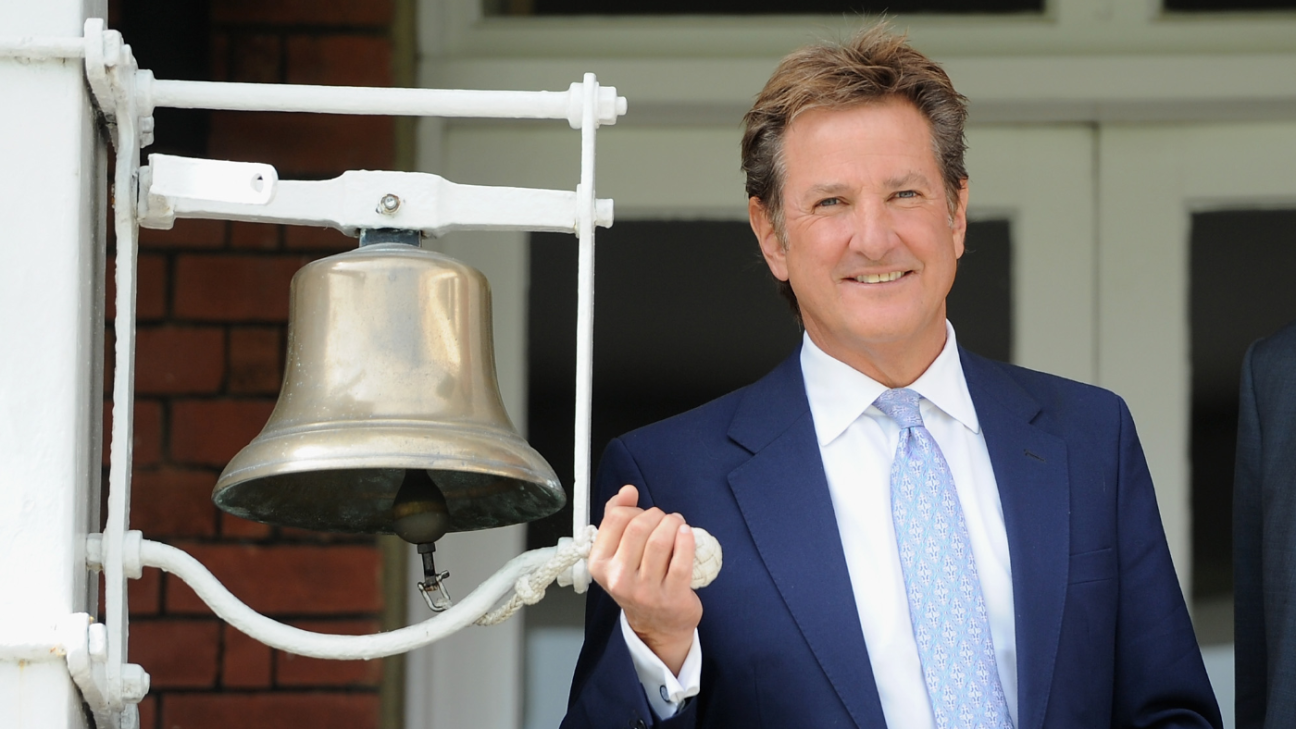Nicholas, who succeeded Stephen Fry this weekend as president of cricket’s oldest and most prestigious members’ club, added that his views echoed those of MCC’s World Cricket Committee, which met in July to call for ODI cricket to be “significantly reduced” outside of World Cup years.
“We believe strongly that ODIs should be World Cups only,” Nicholas told ESPNcricinfo. “We think it’s difficult bilaterally now to justify them. They’re not filling grounds in a lot of countries. And there is a power at the moment to T20 cricket that is almost supernatural.
“It’s more than just ticket sales. It’s the amount of people that want to own franchises, the amount of countries that want to run tournaments, it’s the amount of players that want to be in a market all around the world.
“In a free market, the most money wins. And that’s just the end-game. The players can see that bubbling away and they want to be a part of it. So, it is an extraordinary power that T20 has, and I think scheduling 50-over cricket alongside it just continues the story of the death knell of the ODI game.”
Nicholas concedes that his comments, on the eve of the 2023 World Cup, are unlikely to hold much sway with the ICC unless they can be crafted into a properly structured proposal, but he believes that the issue could be one of the ways in which MCC makes better use of the “soft power” that the club is still capable of wielding, even if its days of direct involvement in the sport’s administration are long gone.
“How much more relevant can MCC be?” Nicholas added. “Is there a danger we’re losing our relevance in global cricket thinking? Can we use our World Cricket Committee better? Can we use our massive list of Honorary Life members, [which has] the outstanding players of the modern era and the era before on it.
“The problem at the moment is that the ICC see us a bit of a threat,” he said. “When we put our head above the parapet, they’re like ‘whoa, settle down, we run the game’. So we need to integrate better with ICC, we need to understand each other better. We need to develop thinking that comes together.”
However, as the founder of Chance to Shine, the charity that has introduced cricket to more than 6 million state-school children in the 18 years since it was established in 2005, Nicholas comes to his MCC role with a proven track record for community engagement, and hopes that his year as president – which coincides with the MCC Foundation being granted a further £1 million to double its number of community hubs from 77 to 150 – can help to highlight the club’s enduring relevance to the grassroots game.
“I’ve always felt that MCC could do a better job with the development game and could make more of a point of supporting kids who aren’t as lucky as lots of us who have been to a private school,” Nicholas said. “There is an element of the club that might be elitist but a lot of members involved in the grassroots of the game just get on with their business. I feel that that we’re quite a long way down the road in many of the areas that the ICEC report hammered us for.
“But it’s difficult. The bricks and mortar of the club matter too. If you sell out the first two days of a Test here, you can’t then give tickets to 500 kids, because there’s nowhere to sit. We sell out our matches … so do The Oval and Old Trafford too, but MCC always get blamed because of the tag. So, I would love to work away at the tag.”
“You’ve got to remember that tradition has mattered, but it’s not so relevant now,” he said. “The founding fathers of this club came from those schools and wanted to play their matches here. It was a cool thing to do. It’s a different world now. So don’t blame the past.
“My guess is that the game will move away from here, probably that the two headmasters won’t want the publicity around it, because attitudes are changing. The world is changing so fast at the moment that it might not suit them to have this issue rear its head all the time. I hope the club can embrace the idea that, in time, common sense will bring change, and crack on in the meantime with really useful things.
“We will never solve the problem of ‘what are you?’ Are we a private members’ club, or are we a cricket ground that wants to lead the international game? We’re both. It’s just what it is. So we must sustain both, and we must be the best we can be at both. We need our membership to be as one, united, believing in this place, and actually believing in a lot of the traditions of the club which is a togetherness and a community in the love of the game.”
Andrew Miller is UK editor of ESPNcricinfo. @miller_cricket
